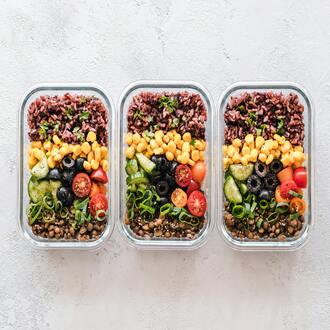Transcription Ketogenic diet and hydration
The ketogenic diet is a nutritional approach that has gained popularity due to its potential benefits for weight loss, improved metabolic health and cognitive performance. However, due to its low-carbohydrate nature, the ketogenic diet can have a diuretic effect on the body, which can lead to increased fluid and electrolyte loss.
In this session, we will explore the importance of proper hydration on a ketogenic diet, how to maintain electrolyte balance, and how to make sure you are well hydrated throughout the process.
The Importance of Hydration on the Ketogenic Diet
Staying well hydrated is essential for proper body function and overall health. On a ketogenic diet, where carbohydrates are drastically restricted, the body enters a state of ketosis and begins to use stored fats as a source of energy.
During this process, the body also eliminates more water and, consequently, may lose important electrolytes, such as sodium, potassium and magnesium. Therefore, maintaining adequate hydration becomes even more crucial to avoid dehydration and possible side effects.
When following a ketogenic diet, it is important to watch for signs of dehydration. Common signs of dehydration include dry mouth, extreme thirst, dark and concentrated urine, fatigue, dizziness and headaches. If you experience any of these symptoms, it is important to take steps to rehydrate and restore electrolyte balance.
Staying hydrated on a ketogenic diet
To stay well hydrated on a ketogenic diet, it is essential to drink enough water throughout the day. It is recommended to consume at least 8 glasses of water per day, but needs may vary depending on activity level and environmental conditions. In addition to water, beverages such as tea and unsweetened coffee can also be included to increase fluid intake. However, it is important to avoid beverages with artificial sweeteners, as they can interfere with ketosis and have negative health effects.
Since the ketogenic diet can have a diuretic effect, you may need to supplement with electrolytes to maintain proper balance. Essential electrolytes, such as sodium, potassium and magnesium, can be found in foods such as avocados, nuts and seeds, but in some cases, supplementation may be necessary. Consult with a health professional or dietitian to determine if you need supplements and the appropriate amount.
Electrolyte-rich foods allowed on the ketogenic diet
In addition to supplementation, it is essential to include electrolyte-rich foods in your ketogenic diet. Green leafy vegetables, such as spinach and kale, are excellent sources of potassium and magnesium. Sodium-rich foods, such as bone broth or bouillon, can also help replenish sodium lost during the ketogenic diet. Including these foods in your diet will help maintain electrolyte balance and reduce the risk of dehydration.
Hydration before, during and after exercise
Hydration is especially important before, during and after exercise while following a ketogenic diet. During exercise, the body loses water and electrolytes through sweat, so it is critical to drink enough water before you start and stay hydrated throughout your workout. After exercise, it is necessary to replenish lost fluids and electrolytes to facilitate recovery and prevent dehydration.
hydration




